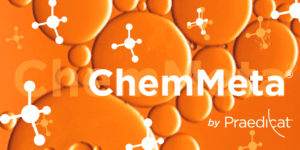Climate change: Coming to a court near you Carbon, methane, and industrial meat profiles lay the foundation for managing climate-related liability risk by Arianna Libera and Adam Grossman Climate change…
read moreFilter posts by:
The impending risk of microplastic Microplastic may have been an uninvited guest to your Thanksgiving Day feast. Or perhaps an unintentional ingredient in that healthy fruit plate you enjoyed. In…
read moreThe past, present, and future of PFAS litigation in the United States Praedicat’s science-based data and analytics are designed to help casualty carriers manage emerging risks when scientists first begin…
read moreTestifying before Congress in 1994, James Johnston, then CEO of R.J. Reynolds, defended his company’s tobacco products by claiming they were no more addictive than Twinkies. At the time, that claim…
read moreHow exposed is your casualty portfolio to “forever” chemicals? Per- and polyfluoroalkyl substances (PFAS) have been used for decades to confer water-resistance and oil-repellency to a wide range of materials,…
read moreOctober 20th 2020: Comprehensive coverage of dietary supplements is now available in ChemMeta®! Three-quarters of all U.S. adults report taking a dietary supplement. And the scary thing is that dietary…
read moreThe “Toxic Trio” of hazardous cosmetic ingredients is now the “Toxic Twenty.” Responding to environmental and consumer protection organizations like the Environmental Working Group, the California state assembly in 2019…
read moreImagine the sight and sound of a sofa engulfed in flames juxtaposed with the question “Are you sitting comfortably?” This last-minute media campaign by the industry-funded lobby Citizens for Fire…
read moreSeptember 21st 2020: Comprehensive coverage of food additives is now available in ChemMeta®! Thousands of substances and chemicals are added to the processed foods we eat every day. Preservatives, anti-caking…
read moreAugust 24th 2020: Praedicat announces release of 4 new scenarios. Praedicat is excited to announce that we’ve added four new liability catastrophe scenarios to our library! As you know, our…
read moreFifth generation (5G) wireless networking technology promises to greatly improve wireless communication, significantly increasing data transmission speeds and reducing latency. The anticipated quantum leap in wireless networking performance is made…
read moreIn 2007 the International Agency for Research on Cancer (IARC) classified shift work with circadian disruption as probably carcinogenic to humans on the basis of sufficient evidence in animals and…
read more











